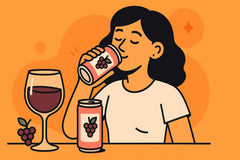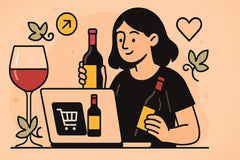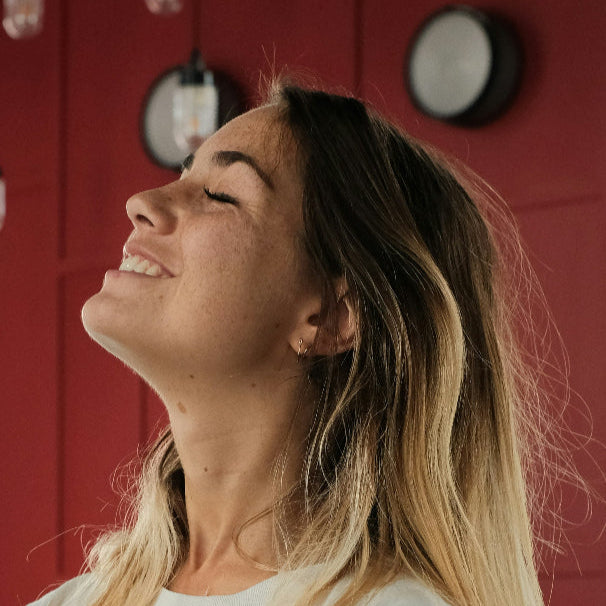When it comes to the world of wines, enthusiasts often find themselves pondering a common question: How long can unopened wine last? This inquiry touches upon critical factors in wine preservation. Understanding these elements can shed light on the longevity of unopened wine and the factors influencing its aging process.
Does Unopened Wine Ever Go Bad?

Unopened wine, with its tightly sealed cork or screw cap, has the potential to age gracefully. However, it does have its limits. The key lies in understanding that while wine doesn't exactly 'go bad' in the way perishable goods might, it can certainly experience changes over time. The chemical reactions within the bottle can lead to a transformation in flavor, aroma, and overall quality.
The Enigma of Expiration Dates
Wines are not typically adorned with an explicit expiration date, unlike perishable goods you might find in a grocery store. Instead, they possess a vintage, which is essentially the year the grapes were harvested. Understanding the vintage allows you to gauge the potential aging ability of the wine. For instance, a robust red wine like a Cabernet Sauvignon tends to age more gracefully than a lighter white, like a Sauvignon Blanc. This diversity in aging potential adds a layer of complexity to the world of wine.
Can You Drink 10-Year-Old Unopened Wine?
The notion of consuming a 10-year-old unopened wine often elicits curiosity and perhaps a touch of trepidation. A well-stored red wine, such as a Bordeaux or Barolo, can indeed offer a delightful experience even a decade after bottling. The aging process can impart nuanced flavors and aromas, turning a once robust wine into a refined and complex masterpiece.
Venturing into the Realm of 20-Year-Old Unopened Wine
Taking the plunge into a 20-year-old unopened wine is akin to opening a time capsule of flavors and aromas. While not all wines are built for such longevity, select vintages and varietals, notably certain Ports and high-quality Burgundies, can astonish even the most discerning palate. This experience showcases the remarkable transformation that can occur over two decades of careful aging.
Can You Drink 100-Year-Old Unopened Wine?
The notion of encountering a century-old unopened bottle of wine is a rare and intriguing prospect. Unlike wines aged for a mere few decades, the potential palatability of a centennial wine raises unique considerations.
While some wines, particularly those fortified or exceptionally well-preserved, may maintain their integrity over a century, the vast majority will have undergone profound transformations. The risk of spoilage is heightened, and the flavors may have mellowed into something sublime or, conversely, taken on notes that render them unpalatable.
Before considering the consumption of a centennial wine, it's crucial to engage an expert or a trusted sommelier. Their insights can provide invaluable guidance on the condition and potential enjoyability of such an extraordinary find.
In the end, the decision to open and taste a 100-year-old unopened wine is an adventure in itself, a journey into the annals of history and the artistry of winemaking.
Preserving the Essence: Factors Influencing Wine Longevity

Ensuring the long-lasting quality of unopened wine is akin to nurturing a piece of art. The interplay of several factors can significantly impact how a wine ages, turning it into a symphony of flavors and aromas or, if mishandled, potentially leading to disappointment.
1. Storage Conditions: The environment in which wine is stored plays a pivotal role in its longevity. Consistency is key - fluctuations in temperature and humidity can have adverse effects. Ideally, wines should be stored in a cool, dark place, away from direct sunlight and temperature extremes. This ensures a gradual, controlled evolution over time.
2. Temperature: Temperature stability is of paramount importance. Exposure to excessive heat can accelerate aging, leading to premature maturation and a loss of delicate nuances. On the other hand, overly cold conditions can slow down the aging process, potentially inhibiting the development of desired flavors.
3. Humidity: A moderate level of humidity is essential for preventing corks from drying out. If corks become too dry, they can shrink, allowing air to seep into the bottle and hastening the aging process in unintended ways. Conversely, excessive humidity can encourage mold growth, potentially compromising the integrity of the wine.
4. Type of Closure: The type of closure, whether it's a cork or a screw cap, can influence a wine's aging potential. Corks allow for a tiny amount of oxygen to interact with the wine, which can contribute to its development. Screw caps, on the other hand, provide a more airtight seal, potentially slowing down the aging process.
5. Positioning: How a wine bottle is stored matters. Bottles should be positioned on their sides to keep the cork moist, ensuring a proper seal. This position also minimizes the surface area exposed to air, further preserving the wine's character.
6. Light Exposure: Light, especially ultraviolet (UV) light, can be detrimental to wine. It can lead to premature aging, resulting in 'lightstruck' or 'skunky' flavors. Dark bottles and proper storage help shield wine from these damaging rays.
7. Vibration and Movement: Excessive movement or vibration can disturb the natural settling of sediments in the bottle, potentially affecting the wine's flavor and clarity. Proper storage minimizes such disruptions.
Embracing the Journey: Opening and Enjoying Aged Wines
As you embark on the journey of aging and exploring unopened wines, it's important to appreciate the deep, complex flavors and aromas that have developed over time. Opening a well-aged bottle is an experience in itself, akin to discovering a hidden treasure. The artistry of winemaking is beautifully showcased in these carefully crafted, matured elixirs.
Conclusion: Unlocking Time's Influence on Wine
In the realm of unopened wine, time is both a friend and a foe. Understanding the balance between aging potential and the risk of spoilage allows us to appreciate the nuances that develop over years of careful storage. While not all wines are destined for decades of aging, those that are can offer an unparalleled sensory experience. So, next time you encounter a well-aged bottle, remember the mysteries that time has woven into its very essence.
In conclusion, the world of unopened wines is a tapestry of flavors, aromas, and stories waiting to be discovered. Embrace the journey, savor the complexities, and let time be your guide. Consider elevating your experience by using Graham + Fisk's high-quality wine in a can—a testament to modern convenience without compromising on taste.Cheers to unlocking the mysteries of unopened wine.







